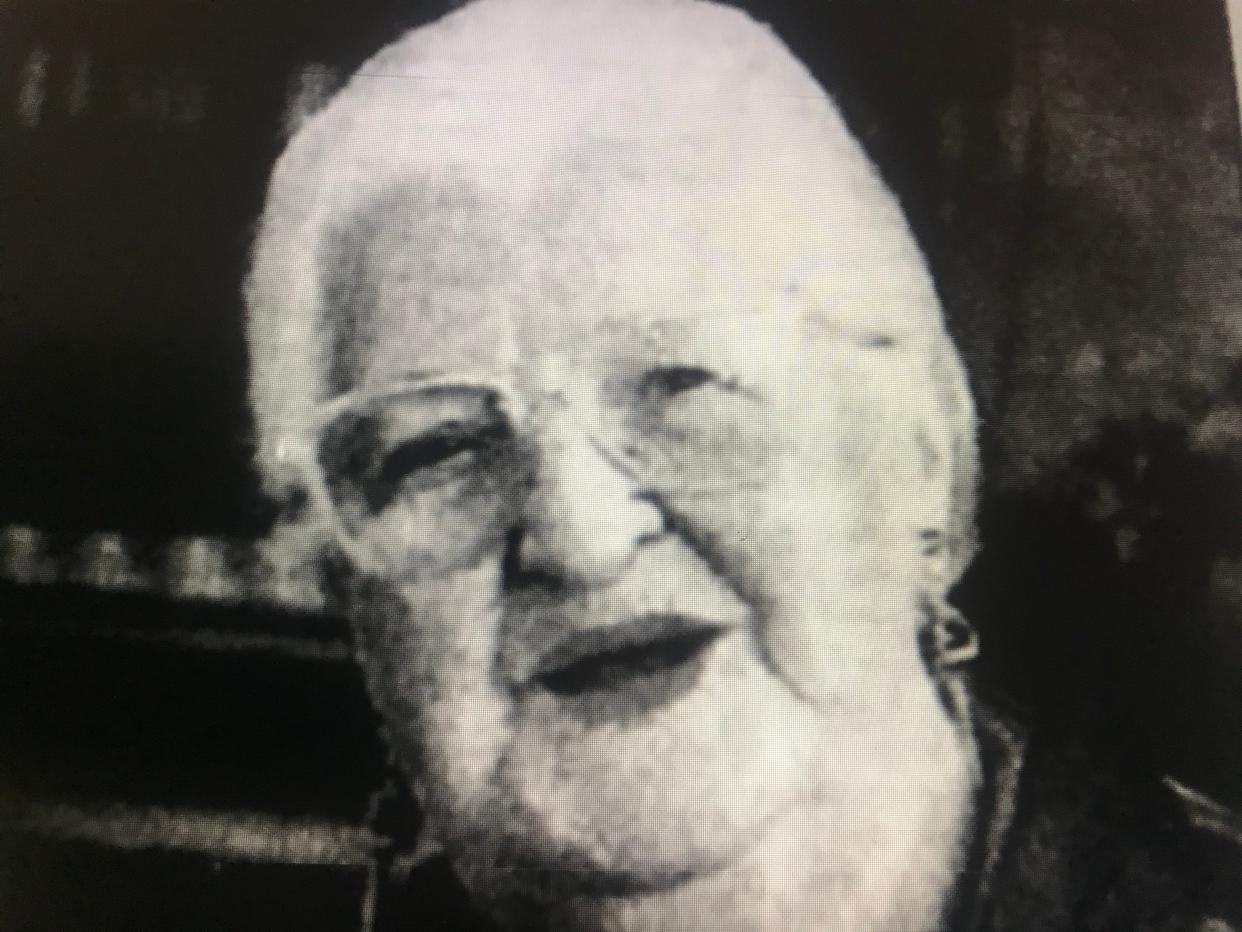Remembering the Holocaust by remembering Fanny

On one of the times I visited Fanny Schlomowitz I brought along my daughter, then a little girl, knowing she might have been too young to remember having gone.
Still, I wanted her to meet Fanny, to be able to say, someday, that she’d met her.
This was in the early 1990s.
Fanny was having a problem with the federal government. The Department of Housing and Urban Development sent her a notice that the rent on her subsidized apartment was being quadrupled. The agency said that restitution payments Fanny received from the German government as a survivor of the Holocaust would now be categorized as income and taxed, a decision that would have forced her to move.
The Arizona Republic wrote articles about this. I did several columns.
In time I just visited because … she was Fanny.
Life is 'bee-uuu-tee-full,' she always said
With the help of then-U.S. Sen. Dennis DeConcini and then-Rep. Sam Coppersmith, legislation was shepherded through Congress that became known as the “Schlomowitz Bill,” saying reparations cannot be considered income when determining eligibility for federal benefits.
President Bill Clinton gave Fanny the pen he used to sign the legislation.
Local TV news stations did segments on Fanny. She was asked to speak before groups and at schools.
On one of those occasions, I went with her to All Saints Episcopal school in Phoenix, where she would tell her story to sixth-graders.
“Such an adventure,” she said. “Every day, God willing, is an adventure. And especially since I am becoming known to some people by your articles.”
She was like that.
One of Fanny’s favorite words, spoken in four equally emphasized parts was “bee-uuu-tee-full.”
What Fanny lost - and what she never lost
The first time we’d met, when her troubles with the government had not been resolved and she might have been forced from her home, she had been just as upbeat.
“First there is the hug,” she said, embracing me. Then, turning in the walker she used to get around, she added, “Next we are walking down this hallway and already the people here are thinking, ‘Oh, my, Fanny has a new young man.’ And all the time I am showing you my world and how wonderful is that.”
Fanny, who was in her 80s then, lived at Kivel Campus of Care, a housing complex for the elderly in Phoenix.
In 1944, she was a married legal secretary, the mother of a 2-year-old girl and pregnant with another, when the German army occupied Budapest, Hungary, where she lived.
Some of her 12 brothers and sisters had been killed in Poland, where she was born. She would learn from one witness that an older brother and his five children were buried alive by the Nazis. Fanny spent the war in the ghetto in Budapest, suffering terrible beatings. Her husband was tortured and subjected to human experimentation at the Dachau concentration camp.
But, she survived. And she never gave in to hate.
“I lived,” she told me. “I am not bitter. At Kivel, we have entertainment, and I am the first one on the dance floor to polka. God is good to me.”
So children could teach other children
At All Saints, where she’d been invited to speak, she the told the children about her life before the war, about her happy family. And she talked about the war years, about the horrors, although, as she told me later, “Only a few of the details. And to the children there should not be too much. Just enough so they know.”
She also spoke about how, after the war, she still thought of the world as a bee-uuu-tee-full place.
She wanted the youngsters to recall what she’d said, what she’d lived through, telling them, “You should teach other children these things I’m telling you.”
Fanny passed away peacefully in her 90s, holding the hands of her two daughters.
Thursday is Holocaust Remembrance Day.
As we honor Fanny’s wishes, and remember what she and so many others went through during the Holocaust, it is just as important to remember who they were, and how they persevered, and how they lived afterward.
We remember the Holocaust by remembering Fanny. And learn.
One of the last things she told me was, “I am blessed by so many things, so I would not now want very much to complain.”
Reach Montini at ed.montini@arizonarepublic.com.
For more opinions content, please subscribe.
This article originally appeared on Arizona Republic: Remembering the Holocaust by remembering Fanny Schlomowitz

